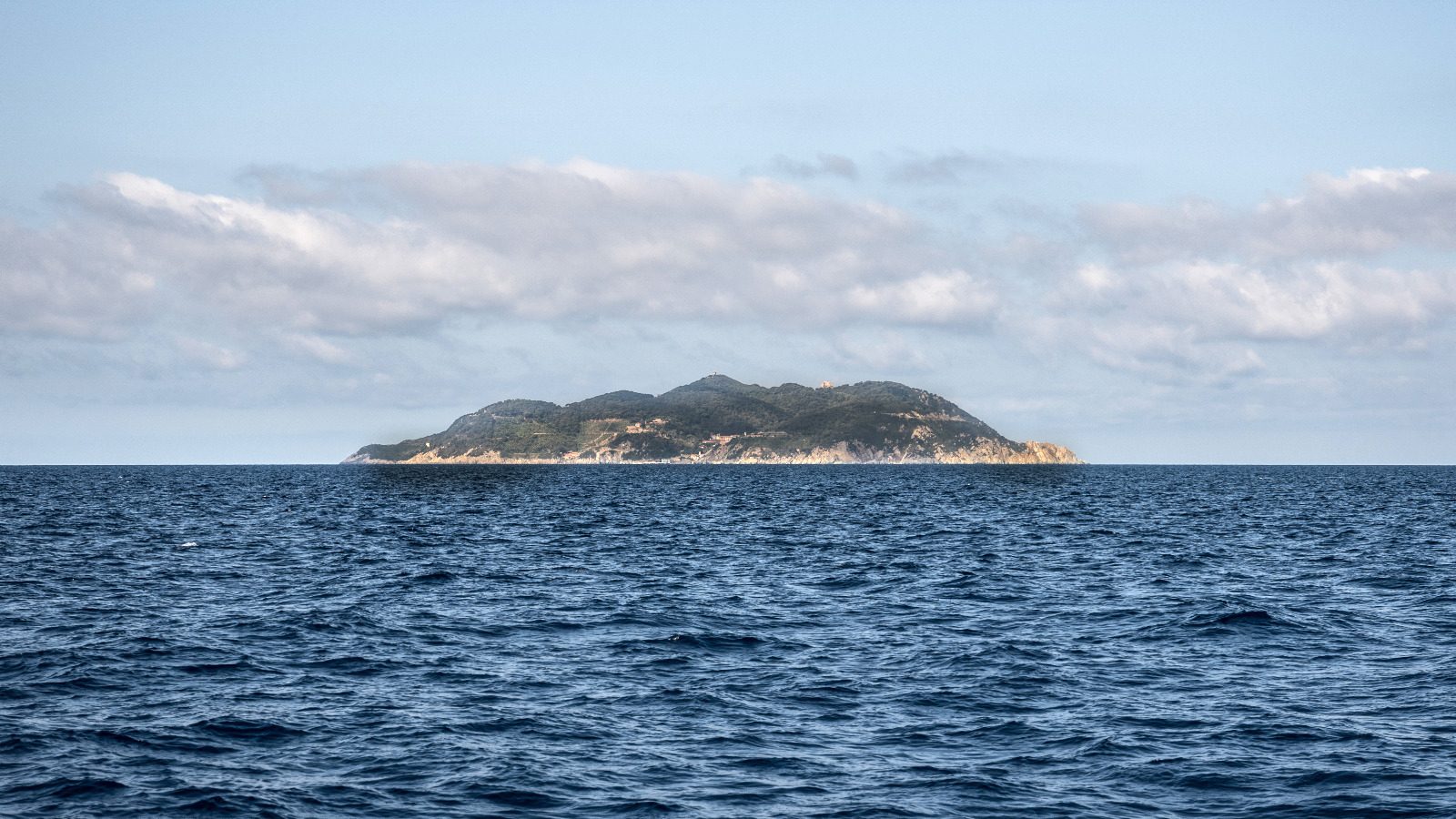Portuguese housing-rights activist Rita Silva does not mince her words.
“The situation is catastrophic,” she says. “In the last five years, there was a huge increase in rents and house prices and we have a historic lack of social housing. This is a problem caused by policies that develop, activate and support the rise of prices… This is not natural.”
Silva is talking about the housing situation in Lisbon and the policies she is referring to include golden visas in return for investment, a non-habitual resident status that offers tax breaks to foreign residents, and a new visa offer for digital nomads – all designed to attract foreigners and their money to a country hammered particularly hard by the 2008 financial crisis.
Silva is quick to stress that she doesn’t blame the young freelancers and tech entrepreneurs who have made Lisbon one of the most popular European destinations for digital nomads, or the tourists who drag their wheelie cases along the city’s narrow streets and fill Airbnb rooms, but she insists that something must be done to protect residents from the financial downsides of this influx of visitors and foreign money.
“When I talk to my friends, we feel that we have lost our city,” she says. “I belong to civil society groups and we struggle to find spaces to come together. It’s the same for artists, sports organisations and others. Public space is all subordinated to the tourist industry and not to the real life of the people who work here and live here.”
Lisbon is bursting at the seams as a pandemic-weary world rediscovers travel and people take advantage of the remote working that became a necessity during Covid lockdowns. But although some blame wandering workers – there are an estimated 19,000 digital nomads in the city – for Lisbon’s housing crisis, Silva says the problem runs deeper.
“This is not about people travelling or about foreigners. This is about a model of economic accumulation and development that is based on speculation in real estate.”
Portugal introduced the so-called golden visa in 2012, offering foreigners residency in exchange for investment in, for example, real estate (up to €500,000) or start-ups – Chinese, Brazilians, Turks, Russians, South Africans and Americans piled in. Then, last October, authorities introduced a digital nomad visa, allowing non-EU digital nomads and remote workers to live and work in the country for up to 12 months, subject to earning at least €2,800 per month – around four times the minimum wage.
Last year, foreigners invested around €654.2m through golden visas, up nearly 42% on the previous year. Since 2012, the total golden visa investment is estimated around €6bn. But this has been a disaster for the people represented by Silva, who is on the board of housing-rights association Habita.
“Real estate promoters tell me: ‘I am not selling a house, I am selling a visa, and if the visa costs €500,000, I sell the house for 500,000 because that is what is interesting’,” she tells The New European, adding that this has also led to the construction of many luxury houses. Then there is also the growth in the short-term rental market and liberalisation of laws that give landlords much more power.
“Lisbon has 20,000 tourist apartments used by Airbnb and others. It’s more in absolute numbers than Barcelona, Amsterdam and Berlin,” Silva says. “The argument is we need to attract foreign investment and we need to promote growth and employment. Okay, but not all growth is good. What we have today is a country where the main economic sectors are real estate and tourism and these sectors produce precarious jobs and people can’t pay their rent. So yes, you promote some growth but the cost is rising inequality and the polarisation of society.”
As the housing crisis has deepened, authorities have come under pressure to address the crippling shortages and in mid-February, Socialist Prime Minister António Costa announced an end to the Golden Visa scheme, and a ban on new licences for Airbnbs and other short-term holiday rentals. It was not immediately clear when the measures worth €900m would come into effect, but Costa said some would be approved in March.
Costa also said rent increases would be regulated, and tax incentives offered to landlords who convert tourism properties into houses for locals to rent. New Airbnb licences will only be granted in less populated rural areas.
Reform can’t come soon enough in Lisbon, a city that is, in a way, a victim of its own success.
Before the pandemic, tourism accounted for around 17% of Portugal’s GDP, with 27 million visitors to the country and revenue of €2.3bn. Now digital nomads are coming too, lured by websites that urge them to “come and taste the delicious pastel de nata (custard pastries), enjoy the cheap wine, and sunbathe on beautiful beaches!”
It’s not so rosy for residents. Rents in Lisbon jumped 37% last year, but more than half of workers earn less than €1,000 per month.
Dave Cook, a PHD researcher in anthropology at UCL and an expert on digital nomads, visited Lisbon last year and says he was “horrified” by how gentrified it had become. “It just felt like a resort in the Mediterranean. Everything was a coffee shop or a boutique-style hotel or restaurant… The centre of Lisbon seems to be for rich people who want to go on holiday.”
Digital nomads are often blamed for this gentrification but Silva says they are just one piece of the puzzle and she stresses that her issue is with policies and not people.
“Here, I hope we don’t see people blaming the foreigner next door, or at the next table… What we are seeing is that people are not happy because they are really impoverished and they cannot afford their basic needs… Yes, we have mobile work now so someone who doesn’t live so well in Italy, or Germany, or in the US can come here and they feel richer and have a better quality of life but then we (the residents) have to go to other places … It’s not a good thing to have people displacing people all around the world.’
So who are these digital nomads? They tend to be young, of relatively modest means (although not compared to the people in the places they often visit), and tech savvy. They are not the same as remote workers or expats, who tend to stay for longer, and digital nomads are also not a homogeneous group: there is a difference between what some call the precariat – typically freelancers – and salaried nomads, who have guaranteed incomes.
Technology is obviously a key driver of this new trend, but Covid too has played a part. The pandemic reinvented desk-based work: overnight, all those givens – the daily commute, the face-to-face meeting – were obliterated for some sectors. Necessity was the mother of this reinvention of work, and it was perhaps one of the most significant revolutions in modern times.
Today, there is a whole industry built around digital nomads – in cities from Lisbon to Mexico City and Chiang Mai in Thailand, there are co-working spaces, organised meet-ups, and WhatsApp message groups to spread practical information. There are websites like Nomad List, offering advice on everything from wifi speeds to the weather. Others offer insurance and logistics support. Globally, digital nomads are estimated to have a collective economic value of around $787bn.
Portuguese entrepreneur Gonçalo Hall set up the world’s first digital nomad village on the Portuguese island of Madeira with the help of local authorities in February 2021. He’s launching similar projects in Brazil and Cabo Verde and, unsurprisingly, the CEO of NomadX and president of the Digital Nomads Association of Portugal is a vocal proponent of the benefits brought by digital nomads to host communities. He thinks recent criticism is unfair and rooted in a misunderstanding of what makes a digital nomad.
“I am very strict in my definition of a nomad; you are not a nomad if you stay longer than six months. All the systems I built with countries are founded on this baseline,” he tells me from Ponta do Sol in Madeira where, as a true-blue nomad, he usually spends six months of the year, travelling the rest of the time.
Hall, who grew up in Lisbon, says digital nomads are being scapegoated for all the city’s problems but the numbers are not as dramatic as media reports suggest. He says nomads account for around 0.1% of Portugal’s tourists and that the lifestyle is still pretty niche.
“People are trying to blame the whole housing problem on 0.1% of the people but it is a global issue. It is also affecting places with no digital nomads, like northern Europe and the UK. This is not to say we don’t have a problem in Portugal because we have, but it is not that different from the problem in the north of Europe, in terms of increasing cost of living.”
To ease the pressure, Hall would like to see hotels transformed into co-living spaces and tourist rentals reworked to suit digital nomads and others. “We need to create a whole new housing and service sector, obviously not just for nomads but also for remote workers, and people who want to move, even within Portugal. People don’t want 12-month rent contracts or two-year gym memberships. They want flexibility with flexible housing.”
He also believes the government should decentralise from Lisbon, which is something he is doing himself through the Digital Nomads Association, which aims to create different hubs around the country that then can be repopulated.
That kind of rejuvenation is, he says, what he has done in Madeira and is working on in Pipa, Brazil, and São Vicente, Cabo Verde. He says digital nomads can play an important role in repopulating rural areas, but Silva is not convinced.
“I think it’s a bit of a fantasy,” she says. “Madeira is a very touristy palace where for the local people, it’s very difficult to live… Digital nomads would not go to live in the interior, in rural areas that are suffering from depopulation because they wouldn’t have access to a hospital, because there is nothing happening there at all,” she says.
Hall believes that digital nomads and, more broadly, remote workers can promote growth and prosperity, and he is particularly optimistic for developing nations, like Cabo Verde, off the coast of Senegal.
“That is Cabo Verde’s strategy. They believe if they digitalise and train 30% of the people to work remotely… then the whole country is working because if you have 30% getting a good salary that will power the whole economy… I think this is the biggest opportunity Africa ever had,” he says, enthusing about Google and Facebook training Africans in digital skills so that they can earn money to be spent in their own countries.
“That, for me, is where the gold is.”
It is estimated that there are around 35 million digital nomads worldwide – although this is a tough population to count accurately. Remote consulting firm MBO Partners said in its 2022 State of Independence study that there were 16.9 million American digital nomads – up 9% from 2021 and 131% from 2019. UCL’s Cook says that what struck him in the MBO report was the fact that there were 72m “armchair” digital nomads – people who are thinking of trying the lifestyle in the next three to four years.
“Before the pandemic, I would’ve said, look, we are talking about quite small numbers… but if we are talking about figures like 72 million for digital nomads in America alone, I think policy makers and urban planners need to start asking themselves really searching questions,” he says.
“It’s all very well to try to encourage people to come in with digital nomad visas but what happens when all of those people want to go to Lisbon or Porto? There needs to be a little more thought about how you are going to encourage those people to engage and revitalise areas of the economy that are already saturated.”
Cook gained first-hand experience of these pressures on a recent trip to Chiang Mai. At the end of his trip, he stayed in an Airbnb – first calling the host to check they were an individual and not a company taking apartments completely out of the housing market.
Reassured that the owner was a European woman who was travelling, he booked. When he arrived at the new condo block, there was a big sign in the lobby saying, ‘this is not for short-term lets, not for tourists, don’t come here’. When he alerted the owner of his rental, they said the sign had been there since they bought the flat. Cook noticed lots of people coming in and out with wheelie suitcases and so he contacted Airbnb and the tourist police, suspecting that the building was mostly being used for short-term rentals.
“I spoke to some people who were living in the block and they were fed up to the back teeth with this happening. The condo block was 75% hotel. And I know this kind of thing is happening in Lisbon too.”
Digital nomads are clearly only the visible tip of a vast iceberg composed of poor and unjust policy-making and skewed global real estate markets. But city authorities are going to have to tackle the problem of how to make room for these visitors because no one can put the remote working genie back into its pre-pandemic bottle.
With countries from Costa Rica to Montenegro offering digital nomad visas, it would seem that the logical next step for destination governments is to look beyond the short-term gains to craft urban planning and social policies that can cope with these changes.
In Europe, Spain has become the latest to jump on the bandwagon, offering a special visa that allows non-EU citizens to live and work in the country for up to five years. Tax breaks will be granted and officials hope the new arrivals will help the country recover from the economic effects of Covid and boost the tech scene.
But there is an uncomfortable moral issue here too. As European countries fall over each other to attract digital nomads, one wonders what the non-tech migrants who have been working in these countries for decades make of all the fuss. It must seem as though there are “good migrants” and “bad migrants” and a lot depends on the passport you hold.
In Portugal, to add insult to injury, these non-tech migrants are among the hardest hit by the arrival of their more acceptable cousins.
“They work 12-14 hours a day in tourism and in construction,” Silva says. “They are badly paid, they wait too long for papers, they are exploited, they are not white and they have huge difficulties getting housing. They live in overcrowded rooms and we have a rise in slums. It is dramatic for migrants.”
Cook says this is something he encourages the digital nomads he meets to reflect upon.
“I try to get them to think critically about what their passport privilege means. Many people assume (this lifestyle) is available to all… The global visa and passport system is racist… everyone’s talking about decolonising and equality but you can’t talk about these things unless we are really honest with ourselves that the ability to travel, to go on holiday, to work remotely, is inherently very privileged. We need to be having these conversations.”
Cook is also worried about the emergence of more and more salaried digital nomads. “If I were involved in local government in Lisbon, I’d be very frightened because I think things are going to get worse,” he says.
For housing activist Silva, it is up to the government to introduce adequate policies, and now it seems the authorities are listening. As well as rent controls, she would like to see progressive penalties for houses that stay empty for too long – there are 745,000 private empty houses in the country, including 48,000 in Lisbon, many of which are owned by absent foreigners, she says.
“Housing is a basic need and a human right. You need a housing policy that doesn’t just deliver houses to the market and you need to get rid of incentives to speculate, like golden visas and non habitual residencies,” she says “ You need to cancel these because they are unfair.”




